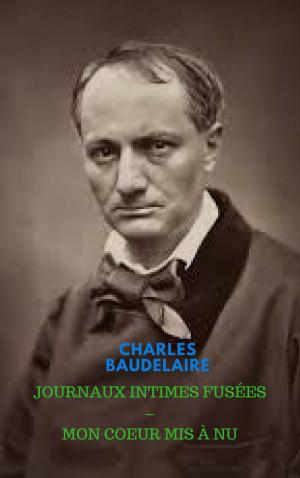| Author: | Gouverneur Morris | ISBN: | 1230002425924 |
| Publisher: | Jwarlal | Publication: | July 13, 2018 |
| Imprint: | Language: | English |
| Author: | Gouverneur Morris |
| ISBN: | 1230002425924 |
| Publisher: | Jwarlal |
| Publication: | July 13, 2018 |
| Imprint: | |
| Language: | English |
Immediately after their father's funeral the Darlings had hurried off to their camp on New Moon Lake. An Adirondack "camp" has much in common with a Newport "cottage." The Darlings' was no exception. There was nothing camp-like about it except its situation and the rough bark slats with which the sides of its buildings were covered. There were very many buildings. There was Darling House, in which the family had their sleeping-rooms and bathrooms and dressing-rooms. There was Guide's House, where the guides, engineers, and handy men slept and cooked, and loafed in rainy weather. A passageway, roofed but open at the sides, led from Darling House to Dining House—one vast room, in the midst of which an oval table which could be extended to seat twenty was almost lost. Heads of moose, caribou, and elk (not "caught" in the Adirondacks) looked down from the walls. Another room equally large adjoined this. It contained tables covered with periodicals; two grand pianos (so that Mary and Arthur could play duets without "bumping"); many deep and easy chairs, and a fireplace so large that when it was half filled with roaring logs it looked like the gates of hell, and was so called.
Pantry House and Bar House led from Dining House to Smoke House, where an olive-faced chef, all in white, was surrounded by burnished copper and a wonderful collection of blue and white.
There was Work House with its bench, forge, and lathe for working wood and iron; Power House adjoining; and on the slopes of the mountain back of the camp, Spring House, from which water, ice-cold, at high pressure descended to circulate in the elaborate plumbing of the camp.
For guests, there were little houses apart—Rest House, two sleeping-rooms, a bath and a sitting-room; Lone House, in which one person could sleep, keep clean, write letters, or bask on a tiny balcony thrust out between the stems of two pine-trees and overhanging deep water; Bachelor House, to accommodate six of that questionable species. And placed here and there among pines that had escaped the attacks of nature and the greed of man were half a dozen other diminutive houses, accommodating from two to four persons.
The Camp was laid out like a little village. It had its streets, paved with pine-needles, its street lamps.
It had grown from simple beginnings with the Darling fortune; with the passing of this, it remained, in all its vast and intricate elaboration, like a white elephant upon the family's hands. From time to time they had tried the effect of giving the place a name, but had always come back to "The Camp." As such it was known the length and breadth of the North Woods. It was The Camp, par excellence, in a region devoted to camps and camping.
Immediately after their father's funeral the Darlings had hurried off to their camp on New Moon Lake. An Adirondack "camp" has much in common with a Newport "cottage." The Darlings' was no exception. There was nothing camp-like about it except its situation and the rough bark slats with which the sides of its buildings were covered. There were very many buildings. There was Darling House, in which the family had their sleeping-rooms and bathrooms and dressing-rooms. There was Guide's House, where the guides, engineers, and handy men slept and cooked, and loafed in rainy weather. A passageway, roofed but open at the sides, led from Darling House to Dining House—one vast room, in the midst of which an oval table which could be extended to seat twenty was almost lost. Heads of moose, caribou, and elk (not "caught" in the Adirondacks) looked down from the walls. Another room equally large adjoined this. It contained tables covered with periodicals; two grand pianos (so that Mary and Arthur could play duets without "bumping"); many deep and easy chairs, and a fireplace so large that when it was half filled with roaring logs it looked like the gates of hell, and was so called.
Pantry House and Bar House led from Dining House to Smoke House, where an olive-faced chef, all in white, was surrounded by burnished copper and a wonderful collection of blue and white.
There was Work House with its bench, forge, and lathe for working wood and iron; Power House adjoining; and on the slopes of the mountain back of the camp, Spring House, from which water, ice-cold, at high pressure descended to circulate in the elaborate plumbing of the camp.
For guests, there were little houses apart—Rest House, two sleeping-rooms, a bath and a sitting-room; Lone House, in which one person could sleep, keep clean, write letters, or bask on a tiny balcony thrust out between the stems of two pine-trees and overhanging deep water; Bachelor House, to accommodate six of that questionable species. And placed here and there among pines that had escaped the attacks of nature and the greed of man were half a dozen other diminutive houses, accommodating from two to four persons.
The Camp was laid out like a little village. It had its streets, paved with pine-needles, its street lamps.
It had grown from simple beginnings with the Darling fortune; with the passing of this, it remained, in all its vast and intricate elaboration, like a white elephant upon the family's hands. From time to time they had tried the effect of giving the place a name, but had always come back to "The Camp." As such it was known the length and breadth of the North Woods. It was The Camp, par excellence, in a region devoted to camps and camping.















